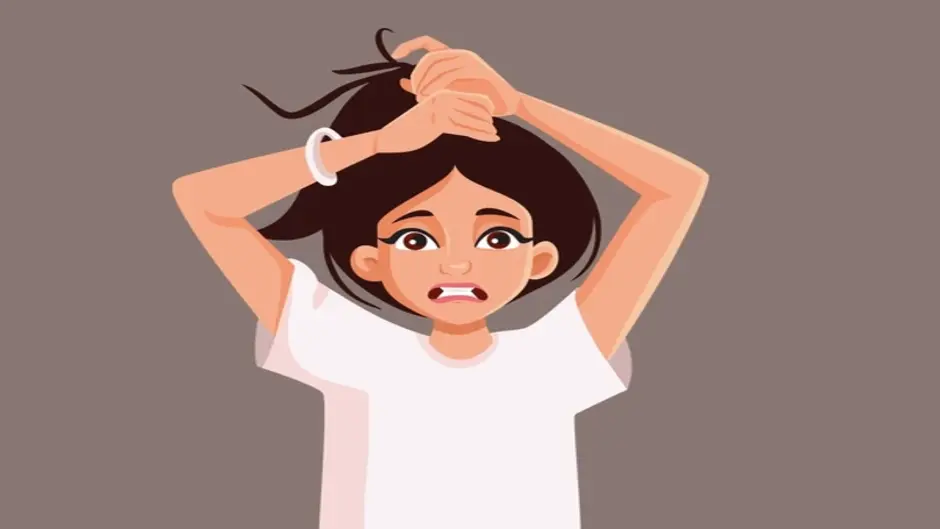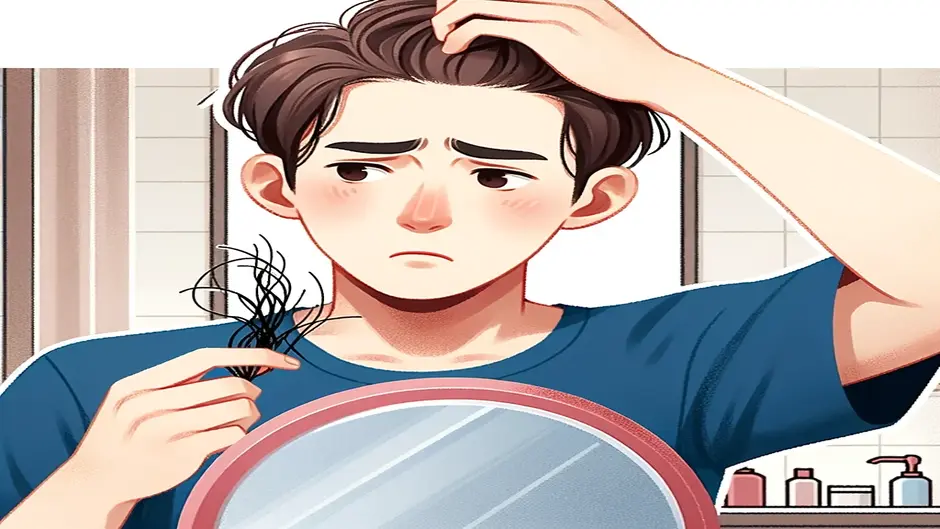Introduction to Hair Loss
Understanding Hair Loss: A Brief Overview
Hair loss, medically known as alopecia, is a common condition affecting millions worldwide. It’s not just a physical issue but often carries psychological weight, impacting self-esteem and social interactions. This comprehensive guide delves into the various facets of hair loss, offering insights and solutions to those experiencing it.
The Psychological Impact of Hair Loss
It can be a distressing experience, leading to a significant emotional toll. It’s essential to acknowledge and address these psychological effects, which can range from decreased self-confidence to more severe anxiety and depression.
Causes of Hair Fall
Genetic Factors in Hair Fall
Genetics play a pivotal role in hair loss, particularly in male and female pattern baldness. Understanding your genetic predisposition can help in anticipating and managing hair loss effectively.
Lifestyle and Environmental Triggers
Factors like stress, diet, and environmental pollutants can exacerbate hair loss. Adapting your lifestyle can mitigate these effects and promote healthier hair growth.
Medical Conditions Leading to Hair Fall
Various medical conditions, including thyroid disorders, autoimmune diseases, and hormonal imbalances, can trigger hair loss. Recognizing and treating these underlying conditions is crucial for hair health.
Early Signs and Symptoms
Recognizing the Early Warning Signs
Early detection of Hair Fall is key to effective management. Look out for signs like excessive hair shedding, thinning, or receding hairlines.
The Role of Age and Gender in Hair Loss
Age and gender significantly influence hair loss patterns. Understanding these factors can guide appropriate treatment strategies.
Diagnosing Hair Fall
Professional Diagnosis: When to Seek Help
If you’re experiencing significant Hair Fall, it’s important to consult a healthcare professional for an accurate diagnosis and tailored treatment plan.
Common Tests and Procedures
Diagnosis may involve blood tests, scalp examinations, and hair pull tests. These help in identifying the specific type and cause of hair loss.
Traditional Treatments for Hair Loss
Medications: Pros and Cons
Medications like minoxidil and finasteride are common treatments for hair loss, but it’s important to understand their potential side effects and effectiveness.
Surgical Options: Hair Transplant Techniques
For advanced cases, surgical options like hair transplantation can be considered. Understanding the procedures, risks, and expected outcomes is vital.
Natural Remedies and Alternative Therapies
Herbal Treatments and Their Efficacy
Herbal remedies, such as saw palmetto and ginseng, have been used for Hair Fall. While some find these effective, scientific backing is varied.
The Role of Diet and Nutrition
A balanced diet rich in vitamins and minerals can support hair health. Nutrients like biotin, iron, and protein are particularly important.

Innovative Hair Fall Solutions
Breakthroughs in Hair Fall Treatment
Recent advancements in hair loss treatment include stem cell therapy and laser therapy. These innovations offer new hope for those struggling with Hair Fall.
The Future of Hair Restoration
Ongoing research continues to open new possibilities in hair restoration, promising more effective and accessible treatments in the future.
Hair Loss in Men vs. Women
Gender-Specific Hair Loss Patterns
Men and women experience Hair Fall differently, with distinct patterns and underlying causes. Understanding these differences is key to effective treatment.
Tailored Treatment Approaches
Treatment approaches should be customized based on gender-specific needs and patterns of Hair Fall.
Hair Care and Maintenance
Effective Hair Care Routines
Maintaining a healthy hair care routine is essential in preventing further Hair Fall. This includes gentle handling, proper washing, and avoiding harsh chemicals.
Preventive Measures to Avoid Further Hair Loss
Simple changes in lifestyle and hair care can significantly impact hair health. Tips include reducing stress, avoiding tight hairstyles, and using gentle hair products.
Hair Loss Myths and Misconceptions
Debunking Common Hair Loss Myths
There are many myths surrounding Hair Fall. It’s important to differentiate between fact and fiction to avoid misinformation and ineffective treatments.
Facts vs. Fiction in Hair Fall
Understanding the scientific facts about Hair Fall helps in making informed decisions about treatment and care.
Hair Loss
Comprehensive Guide to Managing Hair Loss
This section provides a holistic overview of managing Hair Fall, incorporating both medical and lifestyle approaches.
Personal Stories and Successes
Hearing from individuals who have successfully managed their Hair Fall can be inspiring and provide practical insights.
Lifestyle Adjustments for Hair Loss
Stress Management and Hair Health
Stress is a significant factor in Hair Fall. Learning effective stress management techniques can positively affect hair health.
Exercise and Its Impact on Hair Fall
Regular exercise can improve overall health, including hair health, by enhancing blood flow and reducing stress.
Psychological Aspects of Hair Fall
Coping Strategies for Hair Fall-Related Stress
Dealing with the psychological impact of Hair Fall requires a comprehensive approach, including seeking professional help if needed.
Seeking Support: Groups and Counseling
Support groups and counseling can provide emotional support and practical tips for those dealing with Hair Fall.
Hair Fall in Children and Teens
Unique Challenges and Solutions
Hair Fall in children and teens can be particularly challenging. Understanding the unique causes and treatments in this demographic is essential.
Parental Guidance and Support
Parents play a crucial role in helping their children cope with Hair Fall, both emotionally and in seeking appropriate treatment.
Advanced Hair Care Technologies
Cutting-Edge Products and Tools
The market is continuously evolving with new products and technologies for hair care and Hair Fall prevention.
Evaluating the Latest Market Innovations
Staying informed about the latest innovations can help in choosing the most effective and suitable products.
FAQs on Hair Fall
- What are the most common causes of Hair Fall?
- How can I tell if Hair Fall is normal or a sign of a problem?
- Are there any effective natural remedies for Hair Fall?
- What should I expect from Hair Fall treatments like minoxidil or finasteride?
- Can changes in diet or lifestyle improve hair health?
- How do I choose the right hair care products for Hair Fall?


